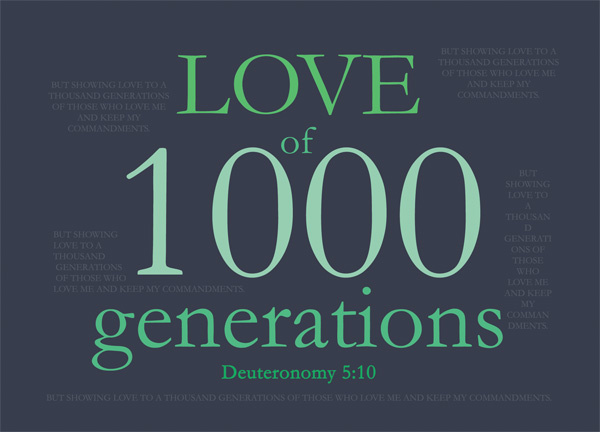
| How much is a trillion? A trillion is the number one followed by 12 zeroes. Mathematically, it represents a million millions or a thousand billions. If you stack a trillion one-dollar bills on top of each other, the stack would be 68,000 miles high – one third of the way to the moon. If you count off a trillion seconds, one at a time, starting right now, it would take you 31,546 years to finish. If, on the day Jesus was born, you wrote a check for a million dollars, and then wrote another million-dollar check the following day, and every day up until this morning, you still would not have paid out a trillion dollars. A trillion is a very big number. The debt of the U.S. government has been rising by about $1 trillion every year since 2007. As of six weeks ago, our national indebtedness was approximately $26.71 trillion. Political leaders in Washington have sustained a lively discussion since last spring about the need for an additional stimulus package to jumpstart the economy, which would include cash for millions of households devastated by unemployment. It appears they will settle on a figure somewhere between $1.8 and $2.2 trillion. Everyone agrees those funds are badly needed. Nevertheless, as the bumper sticker puts it, “Please don’t tell our elected officials what number follows ‘trillion.’” Is there an awe-inspiring number in the Bible? The best candidate is 1,000 – a figure that barely registers in our culture of “muchness and moreness.” But in the context of the book of Deuteronomy, where God declares that he is Israel’s true King, it is a figure of gigantic proportions. God says: “I, the Lord your God, am a jealous God, punishing the children for the sin of the parents to the third and fourth generation of those who hate me, but showing love to a thousand generations of those who love me and keep my commandments.” (Deuteronomy 5:9,10) In recent years a surprising amount of attention has been devoted to the first provision. Does God genuinely wreak havoc on the children, grandchildren, and great-grandchildren of those who sin against him? Family systems therapists confirm there really is such a thing as “generational sin.” Parental frailties tend to recur in the lives of their descendants. But preachers who insist that behaviors like armed robbery, drug addiction, and sexual dysfunction are somehow destined to show up in one’s grandchildren are missing the overwhelming testimony of Scripture that human beings are responsible for their own choices (note Ezekiel 18:20). Do children suffer because of the brokenness of those who precede them? Of course. But the real thrust of Deuteronomy 5 is the numerical contrast between verses 9 and 10. Pain and dysfunction may persist for a handful of generations. But God’s love lasts for a thousand generations. There’s a similar dramatic contrast in Matthew 18:21. Peter asks Jesus, “How many times should I forgive someone? Up to seven times?” Peter may well have thought he had just guaranteed himself a major spiritual attaboy. After all, the going rate for forgiveness, according to the Pharisees, was three times. After forgiving someone three times for the same failure, you were officially off the hook. Peter figured that more than doubling that number might qualify him for sainthood. But Jesus blows away such expectations. “Not seven times, but seventy times seven.” There’s no reason to believe Jesus was setting up a rigid, legalistic standard of 490 acts of forgiveness, after which our hearts can turn cold. His very big number is biblical hyperbole – a dramatic way of saying, “Since God never stops forgiving you, you should never stop forgiving others.” That’s the thrust of God’s words in Deuteronomy. “How long will I love you? What’s the biggest number you can think of? I’ll love you for a thousand generations.” Or we might put it this way: God’s love is a river that will never run dry. Not in this world or the next. To which we can only respond, “Thanks a trillion, Lord.” |
